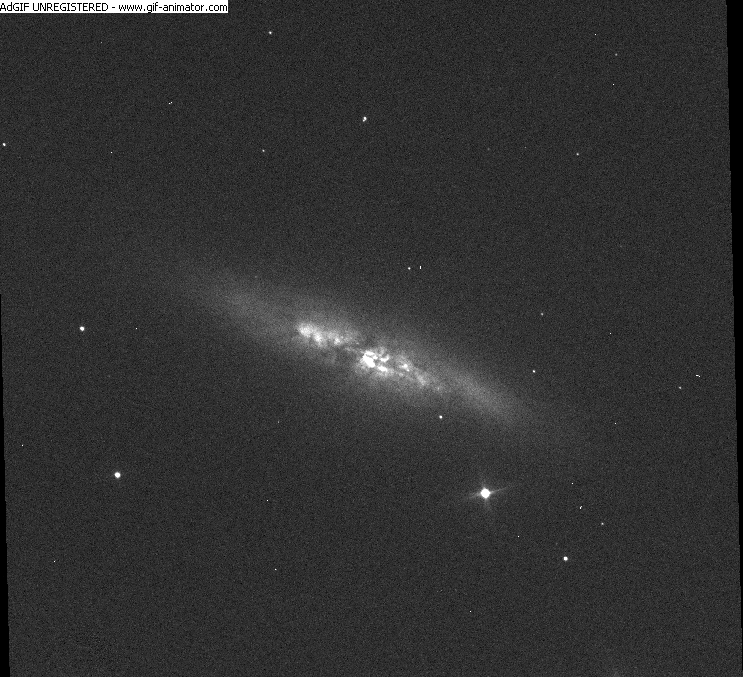Supernova In Messier 82, The Cigar Galaxy, Is The Closest In 25 Years [PHOTOS]
Astronomers and telescopes around the world have observed a supernova in Messier 82, known as the Cigar Galaxy. The death of the white dwarf is the closest supernova to Earth since 1987.

Steve Fossey of University College London and his students were among the first to observe the supernova. Fossey observed the explosion late Tuesday at the University of London Observatory. It is unclear which observatory or astronomer was the first to witness the supernova, but Fossey’s observations were submitted to the International Astronomical Union’s Central Bureau for Astronomical Telegrams. The IAU handles the naming of astronomical objects and has yet to weigh in on the observations.
For now, the supernova has a temporary name of SN_J09554214+6940260 and has been classified as a Type Ia supernova. This type occurs in binary star systems and involves the explosion of a white dwarf. The white dwarf star will pull matter from its neighboring star to the point where it will cause a nuclear reaction and explode. Based on the observations, the supernova in the Cigar Galaxy is a bright one and can be viewed by telescopes and, over time, could brighten further and be observed by binoculars, notes Skymania. Other astronomers and observatories, including the Remanzacco Observatory in Italy, have confirmed the supernova.

The supernova occurred in Messier 82, located approximately 12 million light-years from Earth, the closest supernova since SN 1987A in 1987. SN 1987A was a Type II-P supernova, in the Tarantula Nebula in the Large Magellanic Cloud, located 168,000 light-years away. Prior to this supernova the closest Type Ia supernova was SN1972e in the NGC 5253 galaxy.
Following normal naming conventions, it is believed the supernova in Cigar Galaxy will be named SN 2014I. Researchers could use the supernova observations to measure distance in the universe, and other Type Ia supernovae have been used to indirectly observe dark energy and the expansion of the universe.
© Copyright IBTimes 2024. All rights reserved.






















